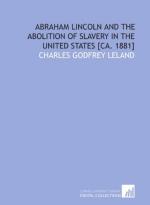|
This section contains 8,015 words (approx. 27 pages at 300 words per page) |

|
SOURCE: Ferguson, Moira. “British Women Writers and an Emerging Abolitionist Discourse.” Eighteenth Century: Theory and Interpretation 33, no. 1 (spring 1992): 3-23.
In the following essay, Ferguson describes why Hannah More was chosen by London's Abolition Committee to compose a poem condemning British slavery, and how her “Slavery: A Poem” influenced subsequent depictions of Africans as powerless and passive victims in need of European guidance and support.
Nothing in May 1789 is surely so interesting as the noble effort in asking for the abolition of the slave-trade. Nothing, I think, for centuries past, has done the nation so much honour; because it must have preceeded from the most liberal motives—the purest love of history and justice. The voice of the Negroes could not have made itself heard but by the ear of pity; they might have been oppressed for ages more with impunity, if we had so pleased.
Anna Laetitia Barbauld...
|
This section contains 8,015 words (approx. 27 pages at 300 words per page) |

|


